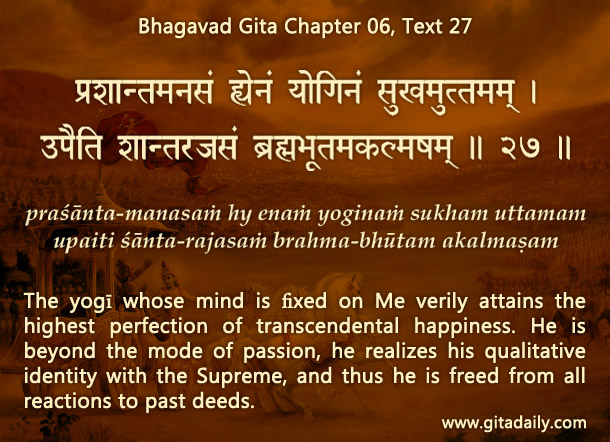To go behind the mind means to follow the mind, to do whatever it does. To go beyond the mind means to seek something higher, beyond what the mind shows.
We often go behind the mind without even realizing it. If the mind proposes, “Eat this, watch this, do this,” we go along with its propositions without evaluating them on merit. Due to our implicit faith in our mind, we let it distract us from serious things to trivial things. For example, students, instead of working on an important assignment, may spend hours playing a video game. As long as we keep going behind the mind, we miss out on life’s spiritual side.
During some moments of fortunate insight, we sense that the mind’s promises of pleasure will never materialize – if we keep going behind the mind, we will waste our whole life. Then we start wondering: Is there some pleasure beyond what the mind proposes? This inquiry brings us to Gita wisdom.
The Bhagavad-gita explains that beyond the mind exists the spiritual level of reality. We ourselves belong to that spiritual reality, whereas our mind exists at the subtle material level of reality. At the spiritual level, the supreme pleasure awaits us in a loving relationship with the supreme spiritual reality, Krishna. The Gita offers us the process of yoga, especially bhakti-yoga, to go beyond the mental level to the spiritual level.
When we practice yoga, our mind still wanders. But instead of going behind it, we determinedly strive to go beyond it. Through such consistent yoga practice, we relish devotional absorption in Krishna, and that higher taste purifies and pacifies our mind (Bhagavad-gita 06.27). Thereafter, it doesn’t distract us, but helps us go towards Krishna.
Only by going beyond the mind, not behind it, can we find lasting happiness.
To know more about this verse, please click on the image
Explanation of article:
Podcast:


lasting happiness comes when mind is teemed with KRISHNA BHAKTI